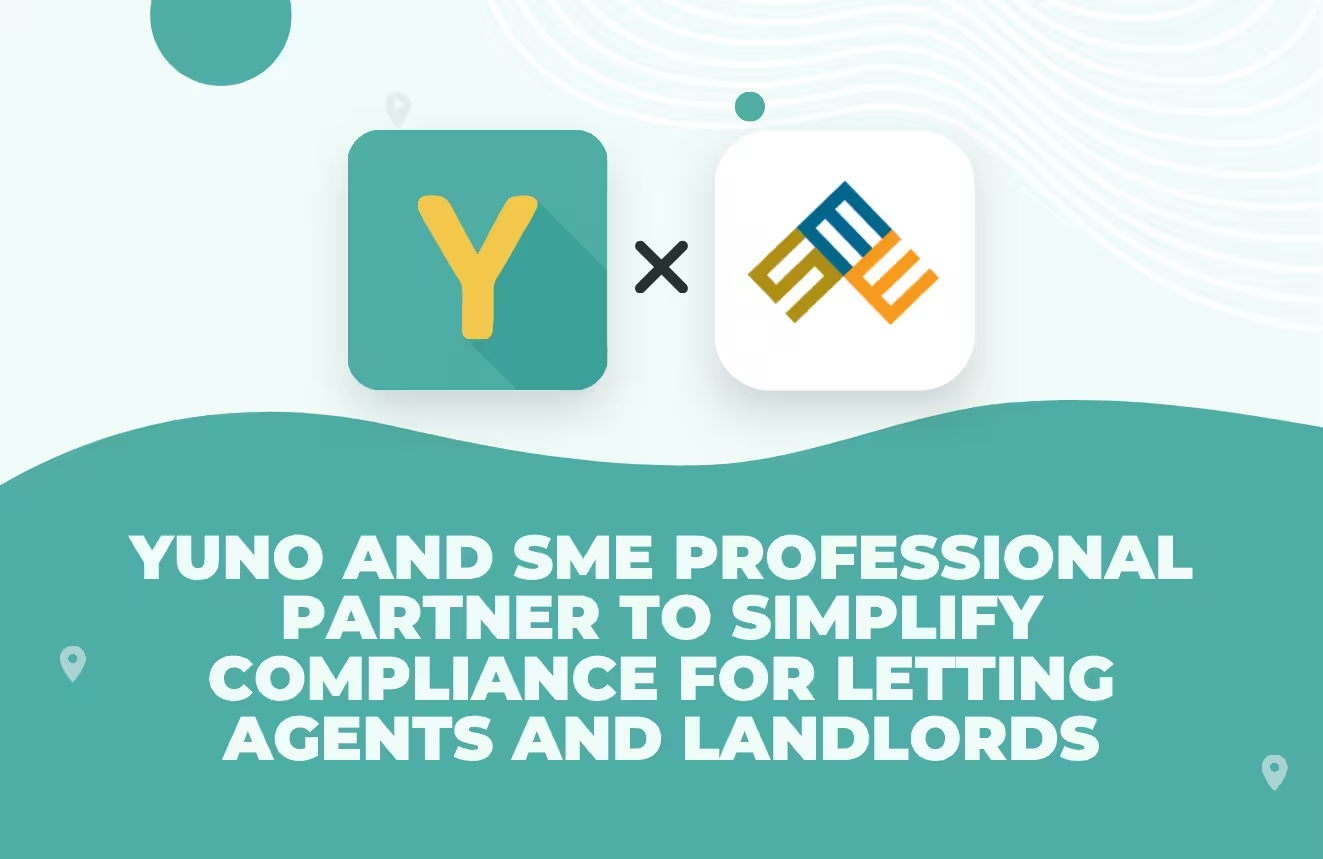

Fire Risk Support for Safer Properties: Ensuring Compliance with UK Fire Safety Law
Ensuring Compliance with Fire Safety Regulations
Fire safety is a critical aspect of property management, and landlords, freeholders and business owners have a legal responsibility to ensure their properties meet stringent fire safety standards without overspending. At Yuno, we provide comprehensive support to help navigate the fire risk process end-to-end for residential and commercial properties, including Houses in Multiple Occupation (HMO’s), multi-occupancy buildings, Build To Rent and all Commercial properties. From initial assessments to ongoing compliance, we simplify the process, ensuring your properties remain safe and compliant with current fire regulations, including the Regulatory Reform (Fire Safety) Order 2005 (FSO), Fire Safety Act 2021, and the Building Safety Act 2022.
The Importance of Conducting a Fire Safety Risk Assessment (FSRA)
The most important aspect of ensuring fire safety in any property is conducting a Fire Safety Risk Assessment (FSRA). This assessment is crucial to avoid endangering occupants and to ensure the property's fire safety measures are correctly implemented, preventing potentially costly rework.
How It Works A fire safety risk assessment generally involves several key steps:

Identifying potential fire hazards

Determining who might be at risk in case of a fire.

Evaluating the identified risks and implementing measures to remove or reduce them.

Documenting the findings, developing an emergency plan, and arranging necessary training.
Who Is The 'Responsible Person' For The Property?
The 'Responsible Person' for the property is typically obligated to ensure that a competent individual conducts a fire safety risk assessment. Following the assessment, this person should engage competent contractors to carry out any required fire safety upgrades to minimise fire risks and establish emergency procedures. These actions should always be 'suitable and sufficient' for the specific type of property, and all upgrades should be 'reasonable and practical'. It's also important to note that fire safety regulations can change over time.

How It Works Understanding Fire Safety Regulations
Fire safety regulations for residential properties are designed to protect tenants and minimise risks. Landlords and property managers must adhere to key requirements, including:
All residential buildings with common parts, HMOs and Commercial properties have a legal requirement to undergo regular and competent fire risk assessments to identify and mitigate potential hazards. Under the Regulatory Reform (Fire Safety) Order 2005 (FSO), HHSRS, and HMO Management Regulations, the responsible person is required to carry out these assessments to ensure that appropriate fire safety measures are in place. The Fire Safety Act 2021 clarified that the scope of the FSO, and therefore fire risk assessments, includes the structure, external walls, and flat entrance doors of buildings containing two or more domestic premises. The Building Safety Act 2022 further mandates that all Responsible Persons must record their completed fire risk assessment in full and record the identity of any individual or organisation engaged to undertake or review. This information may need to be shared with residents of multi-residential unit premises.
Fire Door and Fire-stopping measures, known as compartmentation, are a crucial aspect of passive fire protection, intended to prevent the spread of fire, smoke, and dangerous gases through any breaches in fire-resistant walls, floors, and ceilings. Compartmentation is a fundamental fire safety principle aimed at limiting the spread of fire and smoke within a building. This involves dividing a building into fire-resistant sections using walls, floors, and ceilings constructed of fire-resistant materials. This strategy helps protect occupants, vital infrastructure, and the building's structure by containing a fire to its origin for a defined period. This involves using approved materials and methods to seal openings and joints in fire-rated structures, such as gaps around pipes, cables, and ducts. If there are doubts about the integrity of a compartmentation system or escape route, a fire-stopping survey should be conducted to identify and evaluate the effectiveness of existing fire-stopping measures and recommend necessary remedial actions. All fire-stopping work should be tested and certified for its effectiveness. The need for and specifications of compartmentation are determined by a fire risk assessment and/or property licensing requirements.
Properties must be equipped (on each storey where there is living accommodation) with working smoke alarms, fire extinguishers, and, where applicable, fire doors. For rented properties, the Smoke and Carbon Monoxide Alarm (Amendment) Regulations 2022 require landlords (both private and social) to ensure at least one smoke alarm is equipped on each storey and a carbon monoxide alarm is equipped in any room used as living accommodation containing a fixed combustion appliance (excluding gas cookers). Landlords are also legally obliged to repair or replace smoke and carbon monoxide alarms once they are informed and found they are faulty. While heat detectors are not a replacement for smoke alarms, an Automatic Fire Detection (AFD) system, which includes mains-powered, interconnected smoke alarms and heat detectors with battery backup, is a dependable means of early fire detection, particularly in HMOs. The number and location of these components should be based on a thorough fire risk assessment and/or property licence.
Landlords must ensure that fire escape routes are accessible, clearly marked (including emergency lighting), and free from obstructions. The requirements for fire escape routes are determined by a fire risk assessment and/or property licensing requirements.
Emergency lighting ensures that essential areas within a property's escape route remain illuminated if there is a power failure, thereby aiding safe evacuation in an emergency.. This includes lighting to guide people to exits and standby lighting for visibility in crucial areas. Emergency lighting is often required in multi-occupied buildings and must be designed, installed, and maintained to ensure reliable operation.
- Cladding safety on buildings is essential to prevent the rapid spread of fire, protect occupants, and ensure compliance with modern fire safety regulations.
Adherence to regulations such as the Building Safety Act 2022 and the Fire Safety Order 2005 is mandatory. Section 156 of the Building Safety Act 2022 introduced new responsibilities for Responsible Persons under the Fire Safety Order, including recording fire risk assessments, fire safety arrangements, and contact information. These requirements apply to all non-domestic premises and the non-domestic parts of multi-occupied residential buildings. Landlords of buildings containing two or more sets of domestic premises also have a duty to provide residents with relevant fire safety information in an easily understood format.
Understanding these requirements is vital to safeguarding tenants and avoiding potential legal and financial penalties, including increased fines for certain fire safety offences under the Building Safety Act 2022.
Understanding Your Legal Responsibilities for Fire Safety: Residential vs. Commercial
Understanding Your Legal Responsibilities for Residential Fire Safety
Residential fire safety requires landlords, particularly those running HMOs, and freeholders to conduct regular fire risk assessments under HHSRS, HMO Management Regulations 2006/2007, and the Regulatory Reform (Fire Safety) Order 2005, now encompassing structure, external walls, and flat entrance doors. Key new legislation affecting them is the Fire Safety Act 2021 and the Building Safety Act 2022, including full recording and information sharing with residents in multi-occupied buildings. Key aspects include compartmentation with fire doors and fire-stopping, working smoke and carbon monoxide alarms as mandated by the Smoke and Carbon Monoxide Alarm (Amendment) Regulations 2022, clear escape routes, and sometimes emergency lighting. Compliance with these and other regulations is crucial to protect tenants and avoid penalties.
>>Free Checklist for Residential Landlords & Letting Agents<<
Understanding Your Legal Responsibilities for Commercial Fire Safety Risk Assessments (FSRA)
Commercial (including workplace) fire safety emphasises formal emergency planning and thorough staff training, its consideration of specific workplace hazards like dangerous substances, and differences between different types of workplaces, e.g office versus a factory. Below is a summarised list of core differences. However, Yuno is available to support with fire safety risk assessments in the workplace should you need it.
Additional items you will need to consider
Responsible Person and Fire Marshal: In the workplace, the ‘Responsible Person’ is explicitly designated to ensure that Fire Risk Assessments and all fire safety actions are up to date and compliant. Typically, there is a designated employee as a ‘fire marshal’, who is responsible for fire safety and evacuation from the premises.
Assessment Scope: Workplace assessments must be carried out and consider: emergency routes and exits, fire detection and warning systems, fire fighting equipment, the removal or safe storage of dangerous substances, an emergency fire evacuation plan, the needs of vulnerable people, providing information to employees, and staff fire safety training.
Emergency Planning and Training: Workplace fire safety places a strong emphasis on preparing a formal emergency plan and providing comprehensive fire safety training to staff.
Fire Fighting Equipment: In the workplace, employees have to be aware of and trained in fire, and some are required to use, if they feel safe to do so, fire safety equipment such as fire extinguishers and fire blankets.
Dangerous Substances: Workplace assessments explicitly require consideration of the removal or safe storage of dangerous substances, which is less likely to be required in residential requirements.
Guidance for Different Commercial Uses: Different types of commercial premises, such as offices and factories, require specific risk assessment guides.
Information Provision: While both residential and commercial fire safety responsibilities require providing information, workplace safety emphasises providing information to employees and other people on the premises, while residential safety has specific requirements for landlords to provide residents with relevant fire safety information in an easily understood format.
Yuno Solutions Professional Fire Risk Assessment Services by Yuno
Yuno offers professional fire risk assessment services tailored for residential and commercial properties. Our process ensures that the Responsible Person meets their legal obligations with confidence and doesn’t overspend. Key aspects of our service include:
Our accredited fire officers conduct detailed Fire Risk Assessments for all types of residential and commercial properties, including HMO-specific assessments, identifying potential hazards and areas for improvement in line with the Fire Safety Order and the Building Safety Act 2022, taking into account the structure, external walls, cladding and current standard of flat entrance doors where applicable. We adapt our risk assessments to meet the needs of residential property, ensuring they are assessed as homes rather than large commercial buildings. Our assessments are based on years of experience and are underpinned by an understanding of the differences between residential and commercial fire safety requirements. We also consider LACORS case studies to provide the best advice, aligning with how local authorities assess properties.
Following the assessment, our in-house experts will send you a clear, actionable Fire Risk Assessment (FRA) and our recommendations on any upgrade work required for your review. These reports provide practical recommendations to address identified risks.. We can also provide Fire Door Inspection reports, ensuring all components are present and functioning correctly, and providing certification by 3rd party accredited fire door experts such as FIRAS and BM-Trada Q-Mark.
From installing fire safety equipment, such as mains-powered, interlinked smoke alarm systems, and ensuring compliance with fire door regulations to advising on fire-stopping solutions for sealing gaps and holes, we help the Responsible Person take the necessary steps to enhance safety and meet regulatory standards. We understand the importance of balancing safety with the design and feel of the property when upgrades or replacements are needed. Our recommendations will always be ‘reasonable and practical’ and as per guidance documentation, not opinion!
With Yuno’s expertise, you can be confident that your properties meet all current fire safety requirements.

Ongoing Fire Safety Compliance
Maintaining fire safety is an ongoing responsibility, and Yuno provides services to ensure long-term compliance. These include:
- Regular Inspections: Schedule periodic fire safety checks, including annual checks of AFD systems, to identify new risks and ensure existing measures remain effective
- Compliance Updates: Stay informed about changes to fire safety regulations, including updates related to the Building Safety Act 2022 and amendments to the Fire Safety Order, and receive guidance on adapting to new standards.
- Training for Landlords and Teams: Equip yourself and your team with the knowledge needed to manage fire safety effectively, ensuring compliance and tenant safety. We can also offer HMO training.
- Support for Responsible Persons: We understand the new duties placed on Responsible Persons under the updated Fire Safety Order. We can assist with recording fire risk assessments and fire safety arrangements, recording the identity of fire risk assessors, and understanding the requirements for cooperation and coordination with other Responsible Persons in multi-occupied buildings. We can also help you understand your obligations regarding providing fire safety information to residents.
With Yuno’s fire risk assessment for residential and commercial properties, landlords, freeholders, and property managers can confidently meet their responsibilities while protecting their tenants and investments.





Prioritise Fire Safety Today
Ensure your properties meet fire safety regulations and provide a secure environment for your tenants. Contact Yuno Today to learn more about our fire risk assessment for residential properties and ongoing fire safety support. We offer Fire Safety Support as part of our comprehensive suite of services. We can assist with Licensing, Planning, Design, Energy, Damp and Finance Support in addition to fire safety. We aim to put your mind at ease regarding your fire safety obligations



















